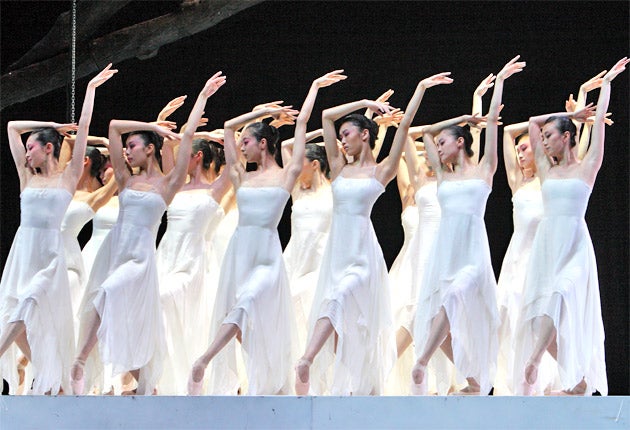China's funds for Edinburgh raise 'moral questions'

Your support helps us to tell the story
From reproductive rights to climate change to Big Tech, The Independent is on the ground when the story is developing. Whether it's investigating the financials of Elon Musk's pro-Trump PAC or producing our latest documentary, 'The A Word', which shines a light on the American women fighting for reproductive rights, we know how important it is to parse out the facts from the messaging.
At such a critical moment in US history, we need reporters on the ground. Your donation allows us to keep sending journalists to speak to both sides of the story.
The Independent is trusted by Americans across the entire political spectrum. And unlike many other quality news outlets, we choose not to lock Americans out of our reporting and analysis with paywalls. We believe quality journalism should be available to everyone, paid for by those who can afford it.
Your support makes all the difference.Human-rights organisations have criticised the Edinburgh International Festival for using cash support from the Chinese government to help bankroll the event.
The National Ballet of China and the Shanghai Peking Opera Troupe are two of the main attractions at this year's festival, which has an Asian theme.
The two national companies are believed to have received support worth at least £100,000 from the Chinese Ministry of Culture, which is using the festival to promote the country's image abroad.
Campaigners warned that the festival organisers risked endorsing China's crackdown on cultural figures, including the dissident artist Ai Weiwei, who was recently subjected to 81 days in prison. Beijing has banned Weiwei, who is said to have feared for his life, from speaking to the media since his release from the detention centre.
John Watson, a director of Amnesty International Scotland, said: "Weiwei's treatment typifies the way the government tackles anyone – journalists, activists, academics, lawyers as well as artists – who step out of line.
"It's ironic in the extreme that they should choose such a riotous celebration of free speech like the Edinburgh Festival to promote their image abroad. China's human-rights record is nothing short of appalling."
Stephanie Brigden, director of the Free Tibet campaign group, said the Chinese support raised "serious moral questions".
She said: "I doubt the festival would consider taking funds from the likes of Libya, Iran or Zimbabwe if they had the means to contribute. By putting its name to the festival, the unelected Chinese government has been given a veil of legitimacy – which is wholly undeserved."
A spokeswoman for the festival said that it received no direct funding from the Chinese government. She said: "In engaging with Chinese performing companies it is necessary that the Chinese Ministry of Culture be involved. The companies are supported by their Government for travel and freight costs, to help them get to Edinburgh.
"It is core to the festival to build bridges which allow all its artists to speak both onstage and through the media, as the National Ballet ofChina's artists have been doing very eloquently."
Discussions about freedom of expression in China will be included in a series of debates being held during the festival, which includes the National Ballet of China's production of The Peony Pavilion and the Shanghai Peking Opera Troupe's The Revenge of Prince Zi Dan. The composer Philip Glass, a vocal supporter of Tibetan independence, who performed at the festival, said he was relaxed about the Chinese financial involvement.
He said: "I think taking exception to these things misses the point – the flow of ideas and culture is direct: bureaucracies are fabrications, they come and go."
Festival facts
Now in its 65th year, the Edinburgh International Festival promises a three-week programme of music, theatre, opera and dance. It differs from the Fringe, dominated by comedy, because all the companies are chosen andinvited by the director, Jonathan Mills, who this year said he aimed to build an "exquisite bridge" between the cultures of Asia and Europe. Highlights include The Peony Pavilion, based on a love story by the Chinese writer Tang Hsien-tsu; The Tempest, re-imagined by Mokwha Repertory Company from Seoul; and a one-man King Lear at the Lyceum Theatre.
Join our commenting forum
Join thought-provoking conversations, follow other Independent readers and see their replies
Comments